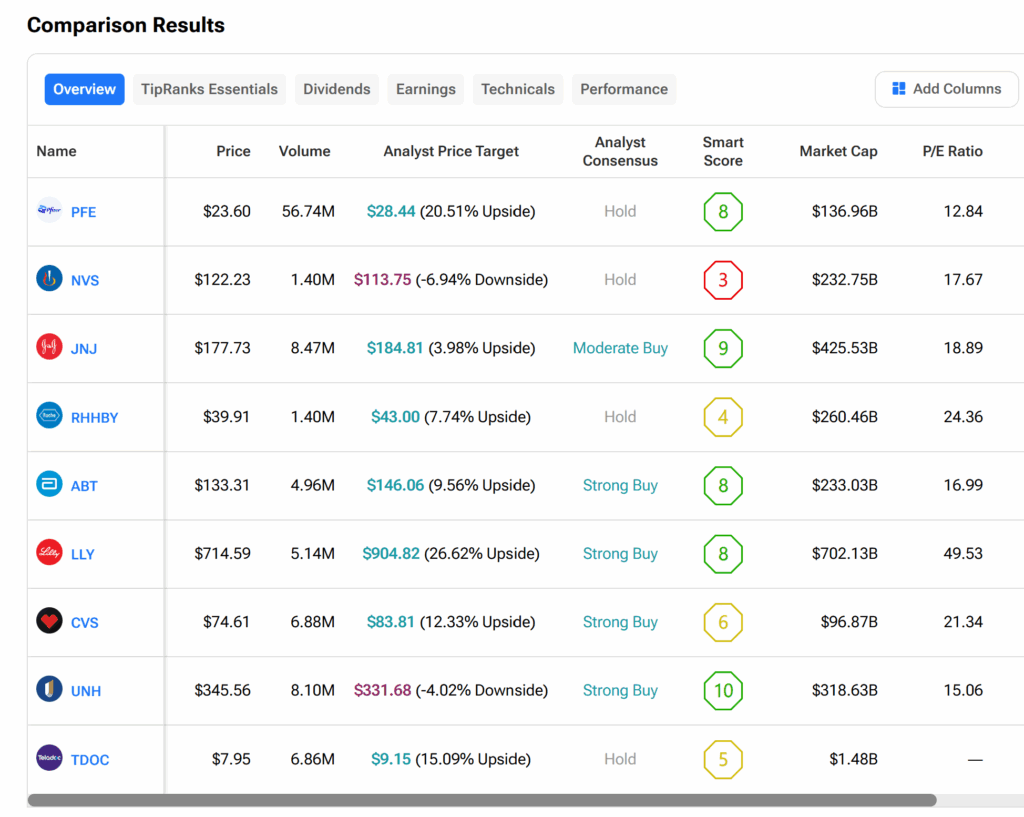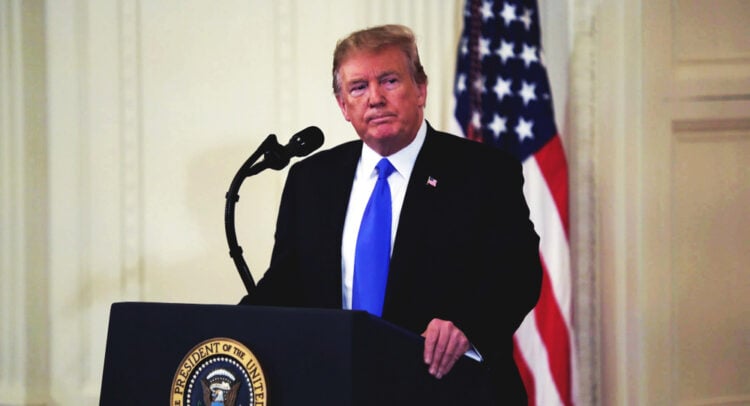The shares of American drugmakers are trending upwards in early trading on Friday. This follows President Donald Trump’s announcement late Thursday, near the end of extended trading, of plans to impose a 100% tariff on all branded or patented pharmaceutical products imported into the U.S., effective October 1.
Meet Your ETF AI Analyst
- Discover how TipRanks' ETF AI Analyst can help you make smarter investment decisions
- Explore ETFs TipRanks' users love and see what insights the ETF AI Analyst reveals about the ones you follow.
Trump, in a post on Truth Social, pointed out that only pharmaceutical companies that have broken ground or kicked off the construction of their manufacturing plants in the country will be exempted from the impending tariffs.
On Friday morning, shares of Johnson & Johnson (JNJ), Pfizer (PFE), Merck & Company (MRK), Eli Lilly (LLY), and Bristol-Myers Squibb (BMY) exchanged hands at about half a percentage point higher. On the contrary, British drug maker AstraZeneca’s (AZN) U.S.-listed shares slumped 2.43% to about $74 to close regular trading on Thursday, and further fell by 0.27% in extended trading.
Meanwhile, showing some resistance, the stock of rival Swiss pharma giant Novartis (NVS) rose by more than half a percentage point in early trading on Friday. This is even as the shares of its Swiss competitor Roche (RHHBY) dropped nearly 3% at the closing bell for regular-hours trading — that is, before the announcement.
Novartis and Roche Vulnerable to Trump’s Tariffs
Trump’s new tariff threat signals the latest effort by his administration to bolster domestic drug production. In July, Trump threatened to impose up to 200% tariffs on pharmaceuticals imported into the U.S. However, at the time, the U.S. president noted that he would “give people about a year, year and a half” to make adjustments.
In August, the administration also slapped a 39% tariff on Switzerland, exempting pharmaceuticals. Furthermore, a bilateral trade deal entered into with the European Union earlier in July also came with a 15% tariff on pharmaceuticals, minus generic drugs.
TD Cowen analyst Steve Scala recently noted that foreign-based pharma companies such as Novartis and Roche are more vulnerable to Trump’s tariffs compared to American drug makers.
However, pharma companies, especially foreign-based ones, have been doubling down on their investments in the U.S. to cushion against the possible impact of tariffs on their business. In April, Switzerland-based Novartis and Roche pledged $23 billion and $50 billion, respectively, to strengthen their manufacturing bases in the U.S.
Novartis last week also said it had boosted its drug stockpile in the U.S, which could last until the middle of next year. However, CEO Vas Narasimhan pointed out that it would take some years to firmly establish a stronger manufacturing base in the country.
What are the Best Pharma Stocks to Buy?
The volatile tariff environment today represents both a challenge and an investment opportunity for investors. TipRanks’ Stock Comparison tool provides insight into which pharma and healthcare stocks are worth buying at this time. Kindly refer to the graphics below.

















